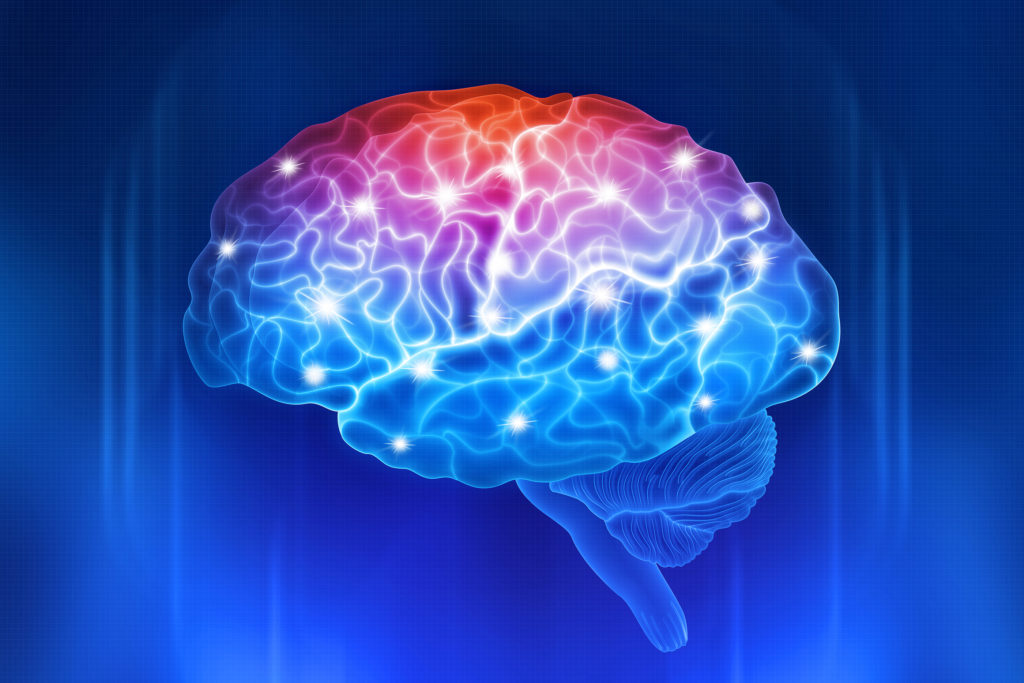Head injuries are one of the most severe and damaging injuries a person can sustain. Unfortunately, the symptoms of a traumatic brain injury often do not appear immediately but instead will show up hours, days, or even weeks or months after the injury was incurred.
Here is a look at the often-delayed symptoms of head injuries, the risks associated with delaying treatment, and the impact of delayed symptoms on your ability to seek compensation if your injury resulted from someone else’s negligence.
About Traumatic Brain Injuries

Head injuries that involve the brain and result from a violent blow or jolt to the head or body are referred to as traumatic brain injuries, including concussions, commonly called “mild” brain injuries. Before we cover the symptoms and treatment for concussions and other brain injuries, one thing should be made clear:
As explained by the Brain Injury Association of America (BIAA), the brain controls nearly all of the body’s functions, including the ability to walk, talk, and breathe. The brain also has a minimal ability to heal from an injury, and the deficits created in the brain’s functions resulting from the injury are generally permanent. Because of this, there is really no such thing as a “mild” injury to the brain.
Johns Hopkins Medicine explains that some of the most common causes of traumatic brain injuries include motor vehicle accidents, violence, and falls. While individuals who suffer less severe head injuries often recover seemingly with few permanent effects, for others, the road to recovery is long, expensive, laden with complications, and provides many unknowns about the person’s ability to recover.
Having a head injury is extraordinarily expensive and impactful. The average cost of medically treating a traumatic brain injury can range between $85,000 to $3 million, and more than 5.3 million children and adults in the U.S. live with lifelong disabilities that will impair their ability to earn an income, finish their education, or even live independently. Brain injuries are extremely high among homeless populations.
What Causes the Symptoms of a Brain Injury to Be Delayed?
In addition to a headache, a traumatic brain injury can cause changes in behavior or mood, confusion or memory problems, seizures, blurred vision, dizziness, fatigue, nausea and vomiting, restlessness or agitation, sensitivity to light or smell, sleeping too much or too little, and slurred speech. However, in some patients, there can be a delay in the appearance of these symptoms, leading the sufferer to believe that they are not seriously injured when they are.
Flint Rehab explains that delays in the onset of head injury symptoms are not a rare occurrence. In a study of patients who reported no symptoms from a concussion two weeks after the injury, 57 percent reported new symptoms within a year.
In fact, even in cases where some symptoms were apparent immediately after the injury, 15 to 30 percent of individuals who experienced a concussion will continue experiencing symptoms for a year or more after the injury. Those with more severe injuries will likely experience a higher number of symptoms.
The symptoms most likely to be delayed after a head injury include cognitive symptoms, such as memory loss, and emotional symptoms, such as depression and anxiety. According to Flint Rehab, a common physical symptom of a head injury that can remain hidden for years after the injury is dystonia, which involves abnormal muscle tone resulting in repetitive twisting motions.
The Risks of Delaying Treatment of a Head Injury
The problem with delaying treatment of a head injury is that the condition can worsen without treatment due to common complications such as:
- A buildup of fluids in the brain can increase intracranial pressure and further damage the brain. Injuries can also cause the brain tissues to swell, increasing pressure.
- A reduction in blood pressure can fail to deliver the oxygen the brain needs to survive.
- Fever results from damage to the part of the brain that controls body temperature and serves as an essential warning of infection.
- Pneumonia results from the patient being bedridden for a lengthy period after the injury.
- A penetrating brain injury causes infections.
- Patients who cannot move around after a head injury suffer from blood clots and skin tissue breakdown.
Even without the risk of complications, there are many reasons to seek a medical evaluation after you have sustained a head injury. In addition to providing a diagnosis that can help you and your doctor to be on the lookout for new symptoms, your doctor can also provide treatments to help minimize the symptoms of the injury and provide you with the most function possible after the injury.
Flint Rehab explains that those treatments commonly include:
- Physical therapy to improve motor functions such as strength, range of motion, balance, and coordination.
- Occupational therapy to help you restore the skills needed to perform daily living tasks or find ways to compensate for the loss of these skills.
- Speech therapy to help those who have sustained damage in the language centers of their brain to work on regaining the ability to communicate and improve cognitive functions.
- Psychotherapy to improve the patient’s thought patterns and help alleviate the injury’s psychological impacts, such as depression or anxiety.
Delaying treatment for a head injury can lead to a longer recovery time, Futurity notes that a study of athletes between the ages of 12-22 years who had sustained a head injury showed that those who received treatment immediately had a faster recovery than those who delayed treatment.
Additionally, those treated promptly had access to a number of acute treatments designed to reduce the impacts of the injury. With proper rest and a gradual return to activities, most athletes were able to resume competition within 2-3 weeks. This recovery time was true for those who also delayed treatment once they began the periods of rest and recovery included in concussion treatment.
Degenerative Brain Disorders Can Occur Many Years After the Injury
Studies show that suffering a head injury can increase a person’s risk of degenerative brain disorders years or even decades after the initial injury. These disorders include Alzheimer’s disease and other types of dementia. While researchers are don’t understand why trauma triggers neurodegeneration, damage to some regions of the brain disrupt microtubule functions and can lead to progressive disorders.
However, it is difficult to definitively determine that the head injury was the cause of dementia later suffered by the patient. It is hard to untangle the effects of the initial injury from the effects of psychiatric conditions that were not the result of the injury. For example, chronic traumatic encephalopathy (CTE)—a degenerative brain disorder directly linked to repeated concussions that professional football players and other athletes incur—only a post-mortem can definitely diagnose it.
The Alzheimer’s Association explains that symptoms of CTE commonly include memory problems, confusion, personality changes, erratic behavior, and aggression. Those who experience a traumatic brain injury early to midlife are two to four times more likely to acquire this condition late in life. While the risk of CTE seems to be higher for those who suffer a more severe initial injury, the condition can result from repeated concussions believed to be minor at the time they were incurred.
Healthcare providers often suspect CTE when they have ruled out other potential causes of the change in the person’s behavior. While there is no cure for CTE, certain medicines can be provided to reduce the symptoms.
Are Delayed-Onset Symptoms Common In Children?
People commonly believe that children are able to recover more quickly from brain injuries than adults because their brains are young. Unfortunately, this isn’t true. Children suffer the same debilitating symptoms and consequences of head injuries as adults do. However, they often are unable to accurately communicate the types of symptoms they are experiencing, and many of these symptoms will not become fully apparent until they are finished physically developing.
Flint Rehab notes that some of the delayed symptoms that children experience—often many years after the injury—include:
- Learning disorders
- Attention deficit/hyperactivity disorder
- Speech and language learning problems
- Developmental delays
- Problems with the bones, muscles, or joints
- Anxiety
It is important to note that these disorders often occur even in children without a head injury. However, the injury can increase the likelihood of these issues appearing. Having a record of treatment for the head injury sustained can help the child’s doctor more quickly pinpoint issues related to the injury.
How Delayed Symptoms and Treatment Can Impact Your Ability to Receive Compensation

When a person sustains a head injury as the result of someone else’s negligence—such as in a car accident caused by a distracted driver or a fall caused by a property owner’s failure to ensure that their property was free of hazards that can cause injuries to guests—they can often seek compensation through the personal injury claims process.
This process involves first filing a claim against a relevant liability insurance policy held by the at-fault party. If the insurer fails to pay the claim, a personal injury lawsuit can be filed so that a judge or jury can hear the case, then decide if compensation is owed to the claimant.
Every state subjects personal injury claims to a statute of limitations. Missing this deadline to file a lawsuit will generally result in the loss of the claimant’s right to use the court system when seeking compensation for the expenses and impacts of their injury.
Missing the deadline will also usually result in the insurance provider refusing to offer a settlement, as they are no longer legally required to compensate for expired claims. The problem with delayed symptoms and treatments is that they can result in expenses and impacts not included when the claimant’s attorney establishes a value to the claim.
An experienced personal injury attorney, in communication with the claimant’s medical provider, can estimate future expenses that the claimant will likely incur as a result of long-term or late-onset symptoms.
What You Can Do to Keep Track of the Symptoms of Your Head Injury
One method many people use to track the symptoms of their head injury is by keeping a journal in which you list the symptoms you are experiencing from day to day, any significant changes you have experienced in your symptoms, and the date on which any new symptoms appear.
Taking this journal with you when you have appointments with your physician or psychotherapist can also help you communicate these symptoms or changes to your doctor to better inform them of the type of treatments you need to address them.
How an Attorney Can Help You Seek the Compensation You Need After a Head Injury
An experienced personal injury attorney has a vital role in the success of your head injury claim.
Not only do they have the ability to communicate with your healthcare providers to estimate your future expenses and incorporate them into your claim, they can communicate those expenses to the at-fault party’s insurance provider or the judge or jury if the case goes to trial. They can prove these expenses through documentation, and testimony from your doctors.
Schedule A Free Consultation